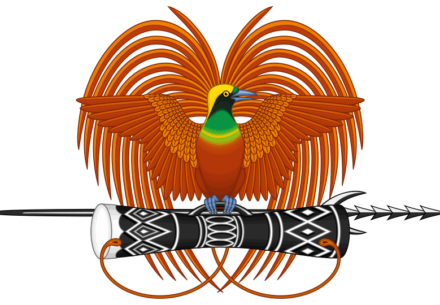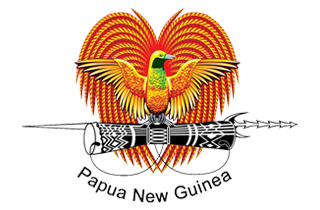Regional relations
- Climate of PNG
- Constitutional Framework
- Cultural Events
- Cultural Institution
- Cultural Life
- Daily Life and Social Customs
- Decolonization
- Demographic-Trends
- Finance
- Education
- Economy
- Drainage-Soil
- History
- Health-Welfare
- Housing
- Justice
- Land
- Labour-Taxation
- Local-Government
- Media-Publication
- Manufacturing
- National Anthem and Pledge
- National Politics in the 1990s
- PNG History
- People – Ethnic Groups
- Plant and Animal
- PNG Public Holidays
- Political Process
- Postcolonial Politics
- Regional Relations
- Relief
- Religion
- Services
- Settlement Patterns
- Sports and Recreation
- Trade
- Transportation &telecommunications
Papua New Guinea’s postindependence relationship with Australia, its former colonial ruler and its next-door neighbour, was often awkward. Papua New Guinea remained in Australia’s sphere of influence and continued to count on Australia’s support during times of crisis. At the time of independence, development assistance from Australia provided more than two-fifths of the national budget. Initially this aid was undesignated budget support, but in the 1990s Papua New Guinea’s declining development indicators and perceptions of rising corruption prompted the government in Canberra to impose jointly specified aid.
In 2003 the government reluctantly accepted an Enhanced Cooperation Program from the government of Australian Prime Minister John Howard that included placing Australian police on the streets as well as some officials in the Port Moresby bureaucracy. In May 2005 the foreign police component was ruled unconstitutional, and the administrative aspect of the program was renamed and greatly reduced. By 2010 the Australian government was still providing a large amount of development assistance but with reduced influence in Port Moresby.
Some Papua New Guinea ministers, including Prime Minister Somare, resented Australian attempts to steer aspects of development and came to reject or delay some proffered aid projects. The growth of Asian markets for Papua New Guinea’s minerals and liquefied natural gas increased national confidence, which encouraged members of the government to decide their own developmental priorities.
Recovery in the 21st century
Sir Michael Somare joined the new National Alliance Party in 1997; he led it to victory in the July 2002 elections and formed a government in coalition with 20 other parties. Despite having inherited a large budget deficit, Somare’s administration benefited from Morauta’s reforms, and from 2004 it oversaw renewed mining exploration and investment.
The government was unstable, however, with four deputy prime ministers in five years. Minister of Treasury and Finance Bart Philemon had trouble controlling the profligate tendencies of other ministers, and Somare eventually sacked him as treasurer in 2006 after Philemon mounted a challenge against him for the party leadership.
Philemon then formed the New Generation Party and, joining forces with Morauta’s new Papua New Guinea Party, campaigned against the Somare government in the 2007 elections.
Somare’s well-funded National Alliance was reelected in August 2007, and he formed a new government as the head of a 14-party coalition. The prime minister’s son Arthur Somare, minister for public enterprises, began negotiations on a multibillion-dollar liquefied natural gas project in the central Highlands that would supply energy to companies in East Asia.
Then, in July 2010, the Supreme Court declared unconstitutional the restrictions on the voting rights of MPs imposed by the OLIPPAC. This meant that MPs were free to resign from one political party and join another and free to vote against the prime minister for whom they had voted at the commencement of the 2007 Parliament.
The growing dominance of the executive branch, particularly Somare and his son Arthur, had provoked discontent among the public as well as in the legislature and among some ministers, and the political opposition, led by Morauta and Philemon, attempted to mount a parliamentary vote of no confidence. The government responded by adjourning Parliament for four months without allowing the vote to take place. Another six-month adjournment was agreed to in November 2010.
Meanwhile, a legal case had been pending against the prime minister since July 2008 for official misconduct relating to the filing of financial returns over a 20-year period, and in late 2010 he stepped down temporarily from his post while a tribunal was convened.
He was found guilty by a panel of international judges in late March 2011 and received a two-week suspension from office, during which his new deputy, Sam Abal, took over as acting prime minister.
Somare went to Singapore, and it was later revealed that he had received treatment for a serious health problem. He remained in intensive care there for months. In his absence political feuding began between some Highlands ministers and Abal, and a potential fissure loomed in the National Alliance over the question of leadership succession.

Postal Address:
Department of Foreign Affairs
P.O Box 422, Waigani.
National Capital District (NCD)
Papua New Guinea (PNG)
- Central Government Office, Kumul Avenue, Waigani, N.C.D
- inquiries@dfa.gov.pg
- +675 301 4100
External Links
- Goverment Departments and Agencies
- Department of Prime Minister and National Executive Council
- Department of Planning & Monitoring
- Department of Treasury
- Department of Finance
- Department of Personnel Management
- Department of Justice & Attorney General
- National Parliament of Papua New Guinea
- Immigration and Citizenship Services Authority
- Papua New Guinea Tourism Authority
- Investment Promotion Authority
- Kumul Consolidated Holdings
Subscribe to Our Newsletter to get Important News, Amazing alerts & Inside Scoops:




